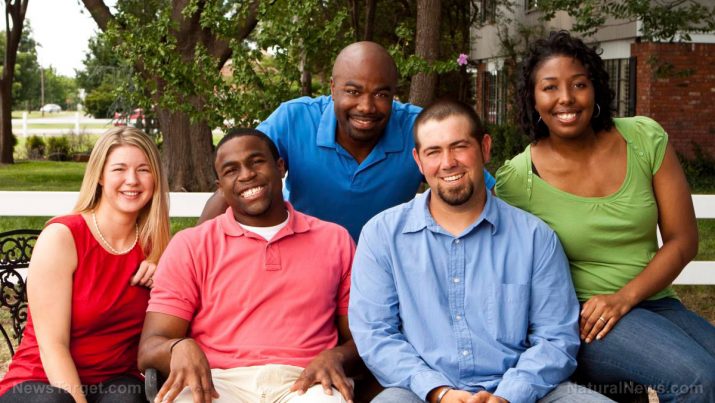
Reverse racial bias: White people tend to think that black people are always telling the truth
Thursday, June 29, 2017 by Earl Garcia
http://www.racewar.news/2017-06-29-reverse-racial-bias-white-people-tend-to-think-that-black-people-are-always-telling-the-truth.html

A recent study revealed that white people were more likely to label a black person as more truthful than another white person. However, white people were also found to commit race bias when judging a deception. Previous studies have shown that people were generally bad at judging between honesty and deceit. Likewise, people typically exhibited a phenomenon called “truth bias”, which was characterized by an inclination to exercise caution and assume that other people were more likely to be telling the truth.
As part of the current study, a team of researchers at the Miami University carried out three experiments in an effort to understand the effects of truth bias on different races. During these experiments, the researchers instructed white participants to watch a set of videos featuring both black and white college students describing their acquaintances. The study participants saw the featured individuals in the videos twice, where the latter was either telling the truth or was fabricating lies. For each video, the study participants to ask to distinguish whether the featured individual was telling the truth or not. The participants were then instructed to complete a survey after watching the videos. The survey questionnaires were designed to determine which internalized reasons and extrinsic reasons prompted the participants to respond without prejudice.
In another experiment, the research team instructed white participants to make judgments about deception. The experts also recorded the participants’ eye movement. The videos used in the study contained both a “truth” response and “lie” response boxes, which the participants clicked according to their perception.
Unveiling truth bias in all three experiments
The results of all three experiments revealed that white participants were more likely to label black students in the videos as “truth tellers” compared with white students. According to the study, motivations to respond without prejudice appeared to be a key contributor to this truth bias. The research team also found that both black and white participants showed this truth bias towards black students in the videos. However, avoiding prejudice as a key driver to truth bias was only seen among white participants.
The research team also found a more apparent discrepancy in the participants’ truth bias when the individual featured in the video was a black student compared with a white student. However, the study also revealed that the participants’ eye movements were telling a different story. According to the study, the participants were faster to look at the “lie” box when a black person was being presented in the video compared with when the featured individual was white.
The researchers noted that the results have important theoretical and practical implications such as: lie detection, reducing racial bias and improving inter-group communication.
“This finding is important because many real-world lie detection judgments are made under time pressure or in less-than-ideal circumstances — such as fatigue or distraction — where the ability to correct for an initial impulse is not possible. Americans, and especially White Americans, often struggle to understand and to consider their potential role in creating and enacting prejudice. Some people deny the existence of racial prejudice, while others work hard to avoid expressing anti-Black attitudes. Understanding situations in which prejudice correction attempts are successful, are unsuccessful, and, as we observe in our work, are even counter-productive is important. In contexts ranging from policing to classrooms to juries it is necessary to better understand when and how prejudice is likely to impact consequential, even life or death, decisions of trust,” lead author E. Paige Lloyd was quoted in saying in ScienceDaily.com
The findings were published in Psychological Science, the flagship journal of the Association for Psychological Science.
Sources include:
Tagged Under: Tags: health, mental health, racial bias, racism





